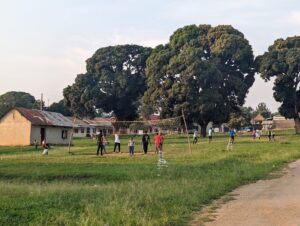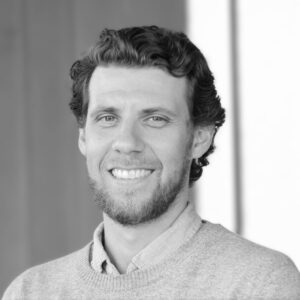ISPH Investigator Philip Kreniske has received $2.9M from NIMH for his study, ICARE (Improving understanding of Capacity to consent to sensitive biomedical Research among adolescents in Rakai Uganda). In partnership with the Rakai Health Sciences Program (RHSP) in Uganda, the project will specifically address the capacity of adolescents to provide informed consent in HIV prevention research.
Parental permission is one of the largest obstacles to including adolescents in research. Although adolescents in many countries can consent to sexual and reproductive healthcare, they often require parental permission for research participation if they are under 18. This discrepancy has led to a lack of adolescent participation in studies, particularly in low- and middle-income countries.
Adult research has shown that biomedical tools like pre-exposure prophylaxis (PrEP) are effective in preventing HIV. However, despite youth in East and Southern Africa experiencing the highest incidence of HIV, less than 1% of prevention trials include minors. Systematic exclusion of adolescents from biomedical trials contributes to age-related disparities in prevention.
ICARE will use the Rakai Community Cohort Study, an open population-based cohort in ~50 communities distributed throughout Rakai and neighboring districts, to evaluate the capacity of adolescents to consent to biomedical research. It will examine this capacity across three adolescent development stages (early, middle, and late adolescents) as compared with that of their parents/guardians. The study will also assess adolescents’ eligibility, beliefs, and interest in PrEP and create a digital toolkit to support decision making regarding key aspects of minor consent in low-resource settings for researchers and policymakers.
Currently, there’s little data on adolescents’ actual capacity to consent to biomedical research, especially in low-resource areas with high HIV prevalence. This research is crucial to potentially providing guidance for ethical boards and harmonizing treatment, prevention, and research procedures for adolescents, which could help end the HIV epidemic by prioritizing adolescent-focused studies.
“Reducing structural barriers to adolescent research participation is critical to ensuring that public health research and policies equitably meet the needs of all people, including young people,” says Kreniske, who credits the support of his mentors and collaborators at CUNY SPH, RHSP, Columbia University, Johns Hopkins, Mt. Sinai, and others for his success in obtaining the grant, his career-first R01. “It’s all about the team, the best mentors, awesome support from CUNY colleagues and admin and world class collaborators in Uganda,” he asserts.
Kreniske discusses the ideas in his ICARE study in the most recent episode of the CUNY SPH podcast, Making Public Health Personal, Equity for the next generation at home and around the world.
About the CUNY SPH
The CUNY Graduate School of Public Health and Health Policy (CUNY SPH) is committed to promoting and sustaining healthier populations in New York City and around the world through excellence in education, research, and service in public health and by advocating for sound policy and practice to advance social justice and improve health outcomes for all. sph.cuny.edu.
About the CUNY ISPH
The CUNY Institute for Implementation Science in Population Health (ISPH) was founded on the notion that substantial improvements in population health can be efficiently achieved through better implementation of existing strategies, policies, and interventions across multiple sectors. With that in mind, we study how to translate and scale up evidence-based interventions and policies within clinical and community settings in order to improve population health and reduce health disparities. cunyisph.org

